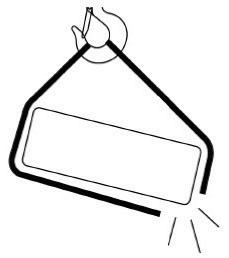
1 minute read
Sling Protection
from 2024 Catalog
by Lift-All
Cut And Wear Protection
Selection of Sling Protection Products
Advertisement
Sling protection products need to be used in applications where sling damage may occur. Cutting of synthetic slings during use is the number one cause of sling accidents. A variety of factors influence sling protection performance. Since no material is fully cut proof, a qualified person must select materials and methods that adequately protect slings from edges or surfaces. Lift-All can assist customers with their product selections.
Cut Protection versus Wear Protection
Exposure of sling to edges with a radius that is too small can cause sling failure and loss of the load. Always protect synthetic slings from being cut or damaged by corners, edges, and protrusions using protection sufficient for each application.

Lift-All sling protection products are divided into two categories, Cut Protection and Wear Protection. Cut Protection Products are designed to improve workplace safety. When placed between slings and edges, cut protection products act as a buffer to prevent sling cutting and to reduce bearing pressure levels at contact areas. Wear protection products serve to extend sling life by reducing abrasive wear and prevent marring of the load surfaces. The following table provides comparative sling protection performance for standard Lift-All products.
COMMON WEAR PROTECTION MATERIALS - LOOSE PADDING
Performance Rating: The bar graphs shown above reflect the comparative performance of Lift-All Cut Protection products against commonly used loose and sewn-on types of Wear Protection products. Test Lift Qualification: To validate the suitability of sling protection products for each application, always complete one or more test lifts in a non-consequence manner. Technical Bulletin MS-10 available for additional information.










